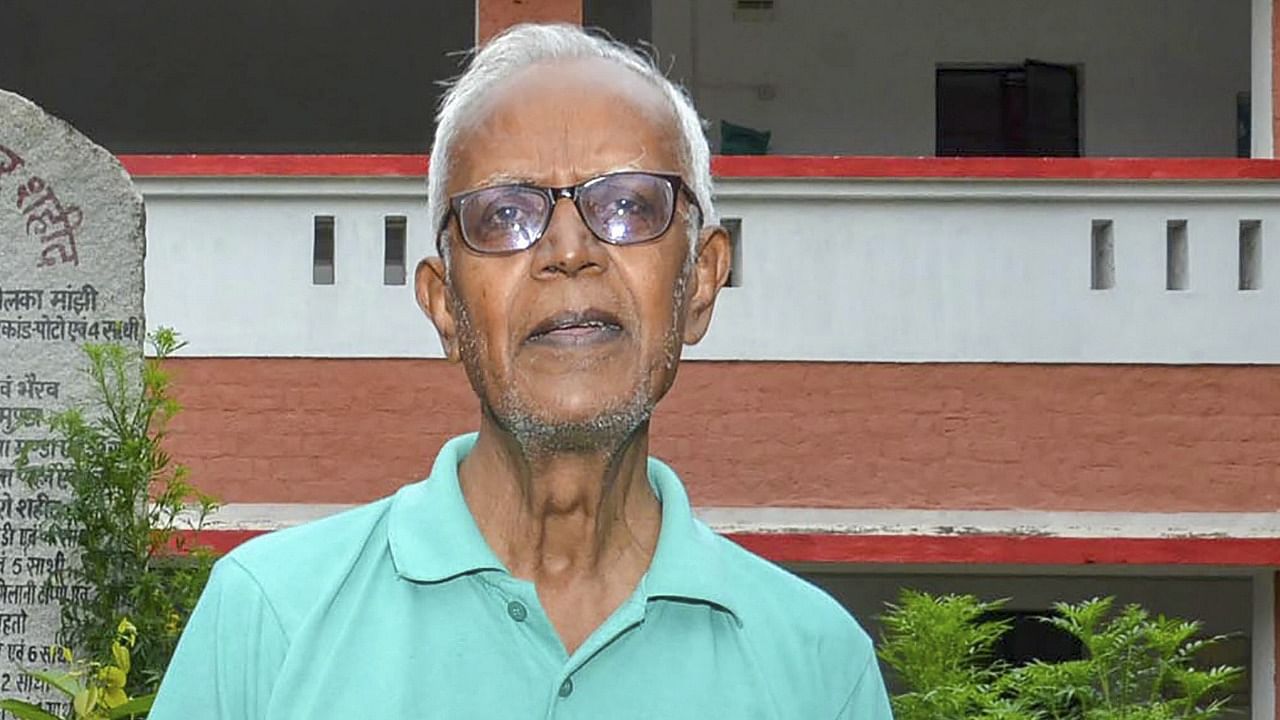
Awaiting a bail on medical grounds, 84-year-old Father Stan Swamy died in hospital on July 5, just hours before his hearing at the Bombay High Court. He was in jail for eight months in connection with the Elgar Parishad Bhima Koregaon Case. Suffering from Parkinson's disease, Swamy was put on ventilator support on July 4 at Holy Family hospital, where he was undergoing treatment.
Earlier this year in May, he had also tested positive for Covid-19. In his bail application, his lawyers said he had suffered a heart attack early Sunday morning and never regained consciousness. In October 2020, at the time of his arrest, his health was already waning, and it just deteriorated further in Mumbai's Taloja jail.
Also Read | A lot else died with Father Stan Swamy
According to a report by BBC, Swamy was the oldest person in India to be accused of terrorism.
Who was Stan Swamy?
Born on April 26, 1937 in Trichy, Tamil Nadu, Father Stan Swamy was a Roman Catholic priest, and a member of the Jesuit order. He went to school at St Joseph's School in Trichy, which inspired him to join the Jesuit order, in Bihar.
In May 1957, he pursued religious studies and thus began his 20-year-long career committed to the fight for tribals and adivasis in Jharkhand.
In 1965, he joined the St Xavier’s High School Lupungutu, Chaibasa, West Singhbhum in present-day Jharkhand where he completed his regency, a two-year time period in which Jesuit trainees take one or two works of the order.
Also Read | Stan Swamy death: Activists express anguish, call for fixing accountability for 'custodial murder'
In 1971, he went to Philippines, where he got his Masters in Sociology at the University of Manila. It was during this time that much of his activism was seeded.
Upon his return, he became the Director of Indian Social Institute in Bangalore for over a decade from 1975-1986.
Swamy is also a founder member of Vistapan Virodhi Janvikash Andolan (VVJA). This is a nation-wide platform that campaigns against human rights violation caused due to displacement of Adivasis, Dalits and farmers.
Throughout his career, spanning more than two decades, he moved the high court seeking release of over 3,000 people who were branded as Maoists. He also trekked to tribal villages to educate people of their rights. He informed them about how governments and corporations were taking advantage of them and building townships, dams or mine without their consent, and often not even being provided with compensation.
In 2018, he openly sympathised with a rebellion of tribal people, who were asserting their rights over common land and resources.
In January 2021, Swamy was awarded the Mukundan C Menon award 2020 for human rights.
A timeline of his arrest and health conditions
On December 31, 2017, the Bhima Koregaon violence broke out in Pune, and an FIR was filed in January 2018. However, it was only in 2020, after NIA took over the probe, that Stan Swamy was arrested. He was taken to Taloja Central Jail in Mumbai on October 8, 2020. On October 23, he filed for interim medical bail, which was rejected. Suffering from Parkinson's disease, he had asked for a straw sipper in November, a demand initially denied by the NIA, but finally met with in December.
Earlier this year, in February, he applied for medical bail yet again, and it was rejected yet again. "Father Stan hatched a serious conspiracy to create unrest in the entire country and to overpower the Government, politically and by using muscle power," the order read.
Later in 2021, he moved the Bombay High Court for his medical bail plea, and the HC asked state government to provide his medical documents. While this was being processed, on May 15, he contracted fever and became weak. During his interim bail plea hearing, he said he could not walk or even eat. The High Court then shifted him to a private hospital where he was being treated. On May 30, he tested positive for Covid-19.
On July 2, 2021, he moved HC to challenge some sections of the UAPA, but suffered a cardiac arrest on July 4, from which he never regained consciousness.